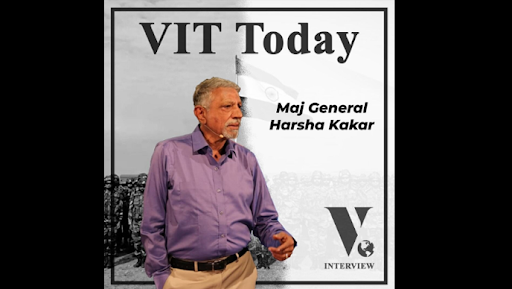
The nation must stay united in a crisis Sainya Sandesh Magazine Aug 2020
The nation must stay united in a crisis Sainya Sandesh Magazine Aug 2020
The Indo-China standoff is now in its third month. There is some progress in disengagement with both sides moving back in some regions and creating buffer zones. This does not signal the end of the stalemate and lowering of guard. Military talks are in the foreground, while diplomatic engagement continues behind the scenes. Political dialogue between the two Special Representatives (SR) led the way for commencement of the disengagement.
It is evident that the standoff would end from political dialogue with diplomatic engagements and army discussions being the front. The trust deficit is low due to the Galwan incident, hence at every stage, intentions would be suspect. Any occupation of territory would be temporary. China may have concerns on bridges built as part of the Darbuk-Shyokh-Daulat Beg Oldie all-weather road, however, it is not the primary reason for its actions.
The challenge for the national leadership has been determining why China initiated this intrusion, as partial pullback implies grabbing territory was not his major intention. Mixed signals have flowed from the Chinese mainland, through their mouthpiece, The Global Times, listing economic policies, Indo-US-Australia partnership and converting Ladakh into a Union Territory as possible causes.
There are five Indo-China agreements to resolve disputes and these are quoted whenever statements are issued. However, when an intrusion is designed to enhance tensions, such agreements are ignored. This is aided by the fact that the LAC remains a line of perception, which could change with time. China always changes its perceptions depending on which sector it seeks to activate.
Multiple rounds of SR talks for border resolution have not led to anything as China is unwilling to accept a solution. An unresolved border works to their advantage. India has even sought partial resolution, implying closing discussions on regions where no major dispute exists, which China turns down.
Transgressions are a regular feature along the LAC. Their frequency has increased since Indian communication arteries have developed, permitting faster movement of troops to counter Chinese patrols. The patrolling season in Ladakh extends to Oct/Nov and hence there is no rush for a resolution.
The current situation is neither alarming nor worrisome. China did achieve surprise when it intruded initially. Subsequent timely response led to an effective deployment stemming Chinese movement. Understanding that its chances of pushing forward are now reduced, China opened itself to talks. Its reluctance to act on military and diplomatic level indicated that it seeks some concessions prior to disengaging. These would flow through the SR level discussions.
The current standoff is an interesting study on how differences within India dominate national security. In the current case, the standoff was initiated by China, which waded into Indian perceived LAC. The army deployed immediately and prevented further intrusion. Since then talks have continued at multiple levels to revert to status quo. However, internally there are elements, political and journalistic, which seek to blame the Indian government, and indirectly the army, for conceding territory, without even applying their mind to realities. Their criticism may be on account of political or ideological differences but evidently, they display a divided nation. In the bargain, China which initiated the predicament is ignored.
Indian politicians are aware of government policies in cases of incidents along the LAC, which is, maintaining silence permitting talks to proceed, rather than demanding leading statements from the political leadership which could aggravate the situation. This has been the norm. However, it always gives the opposition an opportunity to corner the government.
This is not the first time that Chinese incursions have been politically exploited. In Apr 2013, when a Chinese patrol entered Depsang and camped, the BJP accused the then government of being lax. The defence minister, AK Anthony commented, ‘There are disputed points where both sides go, which sometimes causes embarrassing situations.’ The standoff was resolved with talks, which was the chosen option. The shoe is currently on the other foot, as the government has similarly chosen talks for resolution.
When only the government is criticized alongside no anti-China comments, it is China which benefits. The internal divide within the nation provides them the belief that the longer they prolong talks, the greater would be pressure on the government to yield to their demands, no matter how outlandish they are. It would also impact morale of the forces, deployed in extreme hard terrain to counter further Chinese advances.
In the current scenario, neither nation desires an escalation, indicated by commencement of talks and partial withdrawal. With favourable weather till Nov, there is no rush for resolution. While China initiated the standoff, it too has concerns. As a nation, we need to join hands and unite to exploit Chinese concerns, whether they be economic or diplomatic, actions on which has already been announced by the government.
The first step must be ignoring Chinese products and deleting their apps from mobiles. The Confederation of All India Traders, which represents traders and trade associations, has compiled a list of items which are currently imported from China and would be replaced by indigenous substitutes. It aims to reduce imports from China by USD 13 Billion by Dec 2021.
A united nation in times of challenge displays strength and determination and puts the adversary on the backfoot. Unity has been a common feature within whenever there has been a misadventure by Pak. Surprisingly, we are not uniting against China, which will always remain a threat. Politically, there would be enough opportunity once the situation normalizes to question the government on its actions, challenge its decisions and seek political mileage from the standoff. Till it concludes the national public must shed their political and other biases and stand together with the government and the army as it pushes the Chinese menace back.